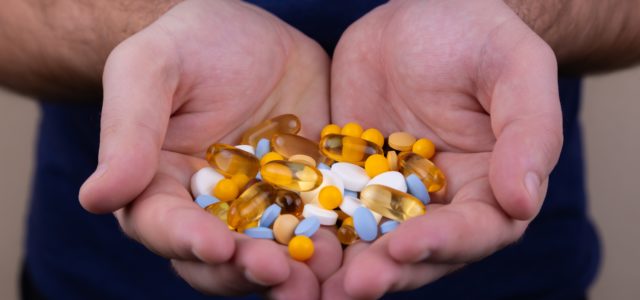Articles About Ketamine from Lori Calabrese, MD | The Ketamine Blog
Breakthrough anesthesia medicine proves life-changing for many who suffer from severe mood disorders.
In the last several years, a medicine began to emerge as a remarkable treatment for mood disorders. It was developed and FDA approved for anesthesia around 1970. Over 25 years later… it began to show its colossal hidden ability. What sort of ability? The power to relieve depression and other psychiatric disorders in a most dynamic way. Disorders like PTSD, bipolar depression, postpartum depression, addiction, social anxiety, and even eating disorders respond to this extraordinary treatment that involves a series of IV infusions. And perhaps the most remarkable of all, ketamine infusions can erase suicidal thinking in a few short hours. These articles about ketamine treatment are presented here to dispel stigma about psychiatric conditions and to give hope about treating them.
Early Testing was Cautious
Researchers tested it with trepidation 10-20 years ago. Then each study built upon the last. Their work revealed more insights about what actually causes depression, and how to treat it effectively. Never before has a medicine helped relieve symptoms in such a wide variety of people and their symptoms.
Researchers Still Learning All Ketamine Can Do
Ketamine works in multiple areas and systems of the brain. It improves the function of mechanisms that have been impaired by the stress of depression and anxiety. It helps the G proteins that pile up on lipid rafts in the cell membrane slide to off. This equips them so they can do their job enhancing signal transmission.
It also turns on the mRNA switch which in turn flips on DNA to build up brain-derived-neurotrophic-factor (BDNF). BDNF then causes synapse connections between neurons to proliferate in turbo mode, transforming and replenishing the connections between brain cells all around the brain, lighting it up with information, cognition, creativity, and insight.
There’s more that it accomplishes, like tamping down the cell bursting in the lateral habenula so you can experience the reward of pleasant moments. We don’t know what researchers haven’t discovered yet, but we look forward to hearing what’s next.
Ketamine Does More Than Bring Relief, It’s Transforming
The results of IV ketamine treatment are transformative. Those who have been weighted under a blanket of lethargic apathy and despair typically find they feel better and better after treatment. They often find they have the energy and motivation to dive into tasks they couldn’t face in recent memory.
More patients with treatment resistant conditions respond to ketamine than any other medicine available. It may sound odd, but the patients it helps the most are those who suffer the most from severe disorders. With continued research, neuroscience researchers and psychiatrists are learning methods of administration that help more and more patients enjoy a rapid and robust response,.
As a result, these individuals enjoy renewed hope. They express amazement at their energy for life and work, and an overall transformation in what they enjoy and are able to accomplish. They report a more balanced and joyful outlook, and the desire to rebuild and strengthen their relationships.
Ketamine is NOT for Everyone
With all the good IV ketamine treatment accomplishes, some people still don’t respond to it at all. The percentage of people who don’t respond is comparatively small, and we need to see more studies that can help explain why.
Why Ketamine Sometimes Doesn’t Work
There are others who have a significant response initially, then the response fades. One reason for that may be they have a deficiency of certain components in their blood. They may have a low folate level, or low testosterone, and some other deficiencies. In cases like this, sometimes replacing those nutrients helps that patient respond to ketamine treatment and experience resilience again. There are even cases where a patient’s blood levels are normal but the levels of certain components in their cerebral spinal fluid is low. By replacing that deficiency, the patient is able to enjoy a very positive and robust response to ketamine treatment.
Neuroscience is gaining knowledge by leaps and bounds in the 21st century. We hope to see more and more medicines that work as well as ketamine for those who have not yet been helped.
These articles about ketamine expand on those things we learn from neuroscience research in the labs, as well as those things we learn from research in our practice.

You know how a disorder – like bipolar disorder or PTSD – can make you so miserable…even make you want to self-medicate? Doing so is rarely a good idea, though it may seem at the time that it helps. But that’s for another post. Anyway, you know how self-medicating often accompanies these disorders, and […]
Continue Reading

This is the first Monday of the New Year…so how do you start a new year? With resolutions? A diet? Maybe more exercise? Lots of people do. But what about you? What if you don’t have an appetite…? Might be hard to stick to a diet more than a couple days… and what if you […]
Continue Reading

Tomorrow is the last day of 2019…and the day before a new year – and a new decade – begins. Let’s jump in and look back. Let’s celebrate our progress over the last year and consider the impact of new breakthroughs this year. Some of these breakthroughs in psychiatry for 2019 may surprise you. The […]
Continue Reading

This time of year conjures up visions of sugarplums, elves, and Christmas trees guarding piles of gifts. There are carolers singing on the corner, and menorahs and dreidels and flickering candle light. Families come together, and friends are invited to share in the celebrations. A manger with a Baby surrounded by angels, shepherds, and wise […]
Continue Reading

It’s the holiday season again and there are parties every weekend, with work, with friends, with family – they crop up everywhere. Festive gift bags provided at liquor stores make it easy to present a gift of alcohol in the busy bustle of the season. For some, holiday drinking is light and rare. For others, […]
Continue Reading

Can you believe it’s already December? We’re smack in the middle of the holidays! The last month of 2019 has begun. If this December is anything like the past, it will zoom by like a rocket. I hope your Thanksgiving was a joyful time for you. Going forward, it’s part of the tradition at this […]
Continue Reading

Thursday is Thanksgiving, and most of us realize what a toll the holidays take on some people. But we may not understand why. Many of us have at least one loved one who is not comfortable in a family gathering at this time of year. They may be in pain, or mourning a loss, or […]
Continue Reading

We’ve talked before about how your diet affects your microbiome, and how your microbiome affects your mood. We’ve also talked about how eating foods rich in fatty acids helps your brain function. Since we know that your eating affects your depression—we know that… and you know that—let’s talk today about how other foods impact your […]
Continue Reading
Safety data analyzed from five NIH inpatient clinical trials. National Institutes of Health researchers found that a single, low-dose ketamine infusion was relatively free of side effects for patients with treatment-resistant depression. Elia Acevedo-Diaz, M.D., Carlos Zarate, M.D., and colleagues at the NIH’s National Institute of Mental Health (NIMH) report their findings in the Journal of Affective […]
Continue Reading

We’ve come so far in ketamine treatment for depression, and we still have so far to go. KRIYA held the first conference on ketamine treatment for depression in 2015. Now, 5 years later, there are several medical conferences that support the exchange of information in this field. Raquel Bennett, the founder of KRIYA – The […]
Continue Reading








